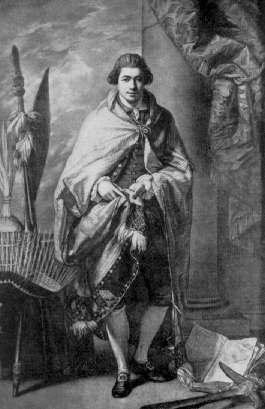 |
 |
 |
 |

Banks's work as an explorer and botanist was among the most important in the eighteenth century. His principal claim to the continuing regard of posterity was the founding and stocking of Kew Gardens as the foremost botanical repository and research institution in the world. As early as 1766 he was collecting botanical specimens in Labrador and Newfoundland, bringing them back to the British Museum. In 1768 he traveled with Captain Cook on a botanical expedition to the South Seas, collecting hundreds of previously unknown plant specimens.
He served as president of the Royal Society for forty-two years. He also founded the Royal Institution of Great Britain with Rumford in 1799, naming Sir Humphry Davy as the first lecturer.